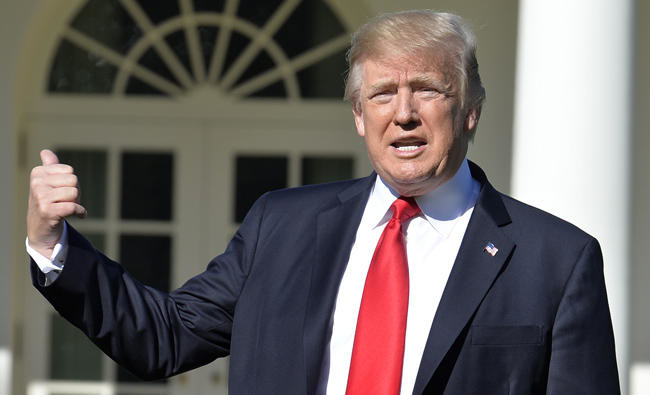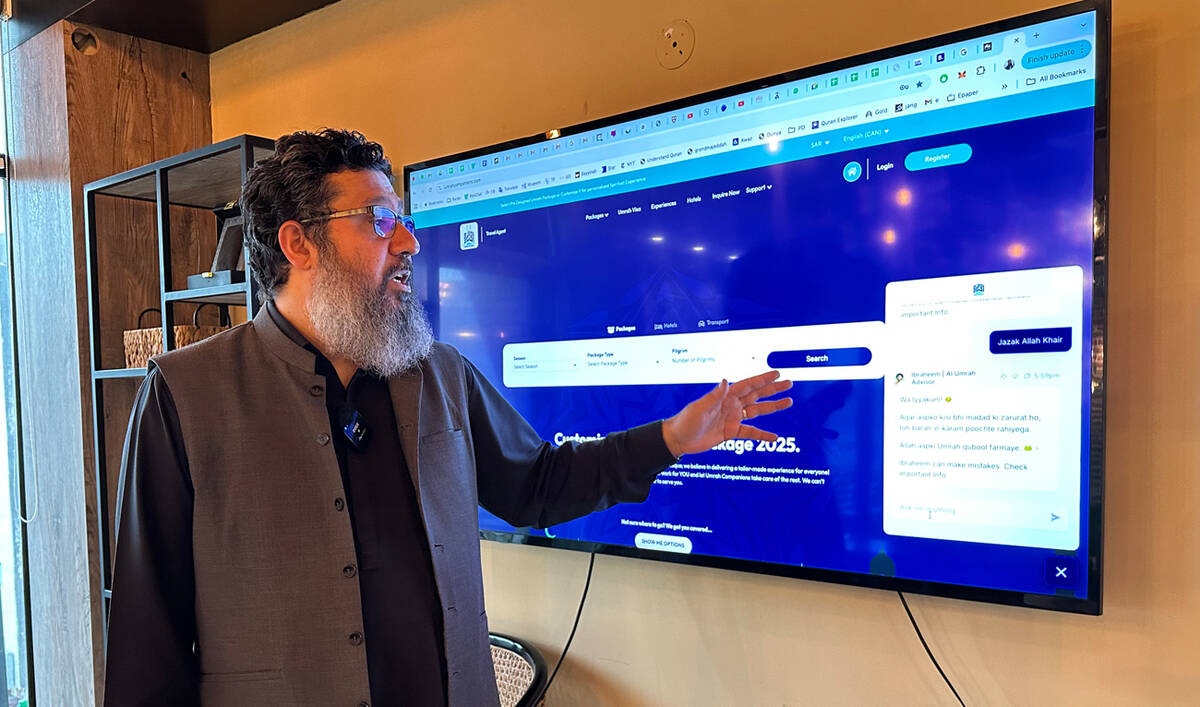WASHINGTON: President Donald Trump’s tweeted suggestion that London police missed an opportunity to prevent a homemade bomb explosion drew speedy pushback Friday from British Prime Minister Theresa May.
In a series of early-morning tweets, Trump called the explosion another attack “by a loser terrorist.” He also offered implied criticism of law enforcement, saying “these are sick and demented people who were in the sights of Scotland Yard. Must be proactive!“
Asked about Trump’s comments, May said: “I never think it’s helpful for anybody to speculate on what is an ongoing investigation.”
The bomb exploded on a packed train during morning rush hour Friday, leaving at least 22 people injured but no one with life-threatening injuries. Police said the explosion was a terrorist attack, the fifth in Britain this year.
Trump told reporters Friday morning that he had been briefed on the explosion, but did not provide further details. He said he planned to call May and described the bombing as a “terrible thing.” He said “we have to be very smart. We have to be very, very tough.”
Another attack in London by a loser terrorist.These are sick and demented people who were in the sights of Scotland Yard. Must be proactive!
— Donald J. Trump (@realDonaldTrump) September 15, 2017
Trump has lobbed trans-Atlantic criticism after previous attacks.
In June, after attacks in the London Bridge area that claimed seven lives, London Mayor Sadiq Khan warned locals not to be alarmed by the large presence of armed officers on the capital’s streets. Trump accused the mayor — whom he has long sparred with — on Twitter of suggesting there was “no reason to be alarmed” by the attack itself.
Trump’s rapid reaction Friday contrasts with a statement he made defending his muted response to the violence in Charlottesville last month, when he said he wanted to ensure he had the facts and not make a “quick statement.”
Trump also used the moment to argue on Twitter that his travel ban targeting six mostly Muslim nations should be “far larger, tougher and more specific — but stupidly, that would not be politically correct!“
On Twitter, Trump promoted his handling of extremist militants and said the government should cut off the Internet to such groups.
“Loser terrorists must be dealt with in a much tougher manner. The Internet is their main recruitment tool which we must cut off & use better!,” said Trump. And he argued that his administration has “made more progress in the last nine months against ISIS than the Obama Administration has made in 8 years.”
Trump concluded: “Must be proactive & nasty!“
The tough talk came a day after Trump drew conservative criticism for pursuing an agreement with Democrats on young immigrants who had been living in the country illegally. Trump said Thursday he was “fairly close” to an agreement that could protect these so-called “dreamers” while also adding border security, as long as his wall with Mexico would be separately addressed.
Trump’s travel ban has been ensnared in the courts since the president’s first attempt to enact the policy in January. The Supreme Court is scheduled to hear arguments on Oct. 10 on the legality of the bans on travelers from six mostly Muslim countries and refugees anywhere in the world.
It’s unclear, though, what will be left for the court to decide. The 90-day travel ban on visitors from Iran, Libya, Somalia, Sudan, Syria and Yemen lapses in late September, and the 120-day refugee ban will expire a month later. The administration has yet to say whether it will seek to renew the bans, make them permanent or expand the travel ban to other countries.



























